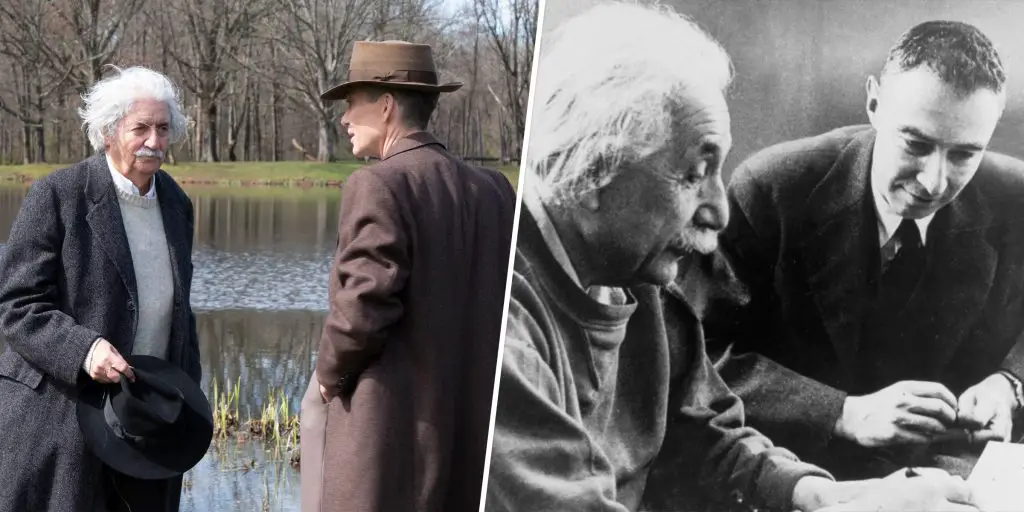Christopher Nolan’s twelfth feature-length film, ‘Oppenheimer‘, has made its grand entrance and is receiving widespread critical acclaim. Staying true to Nolan’s penchant for high-caliber casts, the film is laden with a plethora of top-tier Hollywood talent. The lead role of J. Robert Oppenheimer, famously known as “the father of the atomic bomb,” is depicted by none other than Cillian Murphy. Accompanying Murphy, we see Robert Downey Jr. as Lewis Strauss, Emily Blunt as Kitty Oppenheimer, Florence Pugh as Jean Tatlock, and Matt Damon as Leslie Groves Jr. The narrative provides an insight into the life of Oppenheimer, the Los Alamos Laboratory director during the pivotal Manhattan Project in the World War II era, and his indispensable role in the development of the atomic bomb.
The remarkable casting for ‘Oppenheimer‘ extends beyond the main roles. Creating a buzz on the internet as a competitor to Greta Gerwig’s ‘Barbie,’ the film is bolstered by a cast of familiar faces. Included in this star-studded lineup are Rami Malek, Benny Safdie, Josh Hartnett, David Dastmalchian, Dane DeHaan, Kenneth Branagh, Michael Angarano, Jack Quaid, alongside Nickelodeon’s Josh Peck, with Gary Oldman captivatingly portraying President Harry S. Truman.
The film delves deeper than just recounting historical events; it explores the colossal moral debate surrounding the Manhattan Project. One of the key voices in this dialogue was Albert Einstein, best known for his theory of relativity. In ‘Oppenheimer,’ the character of Albert Einstein is brought to life by acclaimed actor Tom Conti, further embellishing Nolan’s cinematic feast with his distinguished acting prowess.
The Prolific Life of Albert Einstein Before World War II
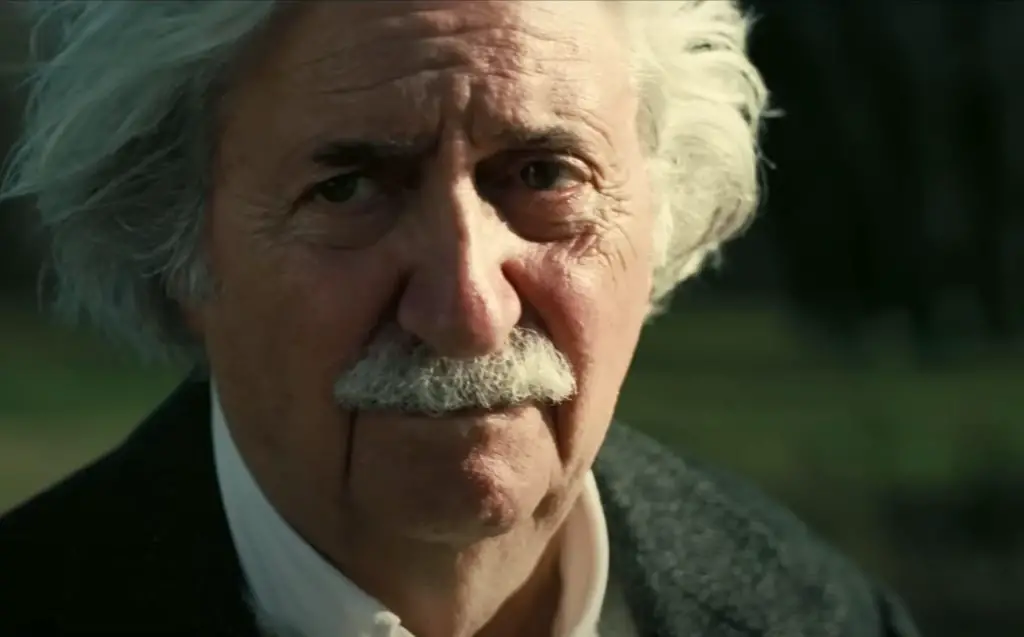
Albert Einstein, a globally recognized figure and arguably one of the most influential intellectuals in history, was born in the German Empire in 1879. His groundbreaking work in theoretical physics won him the coveted Nobel Prize in Physics in 1921, specifically for his discovery of the law of the photoelectric effect. His theory of relativity, disseminated in parts between 1905 and 1915, revolutionized our understanding of gravity and its place in nature. The theory is bifurcated into two sections; the theory of special relativity deals with the laws of physical phenomena in the absence of gravity, whereas general relativity tackles natural law forces, giving an explanation for the law of gravitation.
Before Einstein made his mark with the theory of relativity, he pursued studies and professional endeavors in Switzerland, earning Swiss citizenship and achieving his Ph.D. Once back in Germany, Einstein was the director of the Kaiser Wilhelm Institute for Physics for nearly two decades before winning his Nobel Prize. With the rise of Adolf Hitler in 1933, Einstein relinquished his German citizenship and sought refuge in America.
Albert Einstein’s Influence on the Manhattan Project
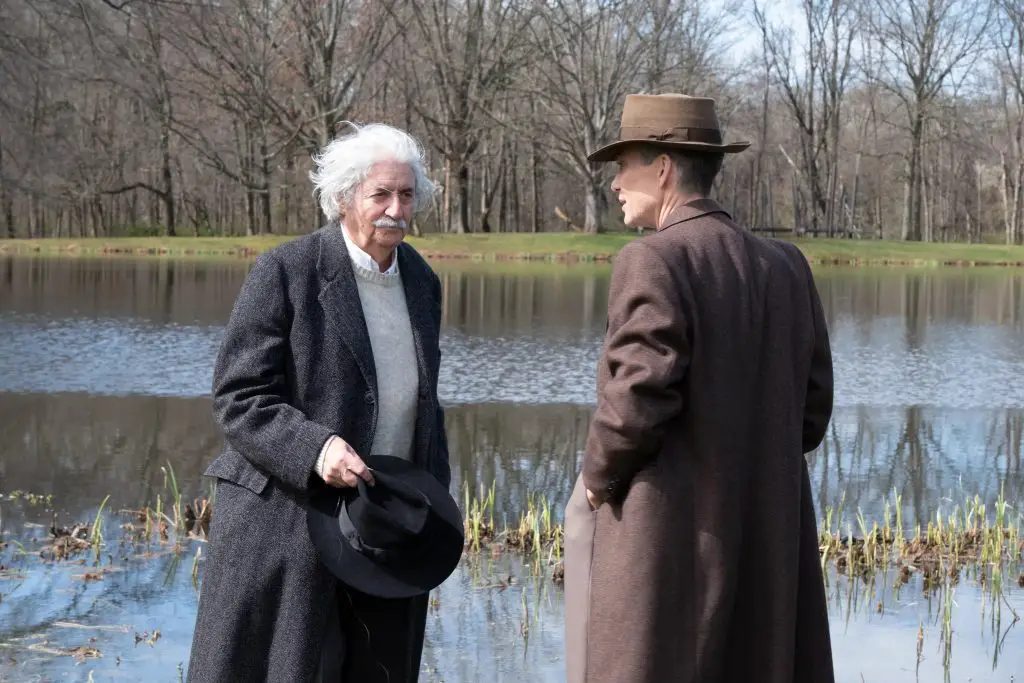
Einstein, foreseeing the potential of Germany’s research into nuclear weapons, penned a cautionary letter to President Roosevelt in 1939. Einstein asserted that new strides in fission research could enable the attainment of unprecedented power through fission chain reactions. He envisioned the possibility and alarming implications of harnessing such power for a bomb. He suspected that Germany was actively venturing into this research and advised the United States government to follow suit. This cautionary warning is credited as one of the pivotal triggers initiating the race for atomic power and the doomsday clock.
Einstein’s pacifist stance led to a denial of the necessary security clearance to actively participate or provide inputs to the Manhattan Project in 1940. Thus, despite indirectly inciting the project’s development through his correspondence with the U.S. government, Einstein played no part in the development of the atomic bomb. The same year, he became an American citizen and continued his work there until his demise in 1955 in Princeton, New Jersey. Einstein, in his later years, often voiced his support for nuclear disarmament and expressed regret for his letter to Roosevelt that instigated the U.S.’s research into atomic energy. He admitted post-World War II that had he known Germany would fail in developing an atomic bomb, he would not have advocated for its creation.
Getting Acquainted with Tom Conti
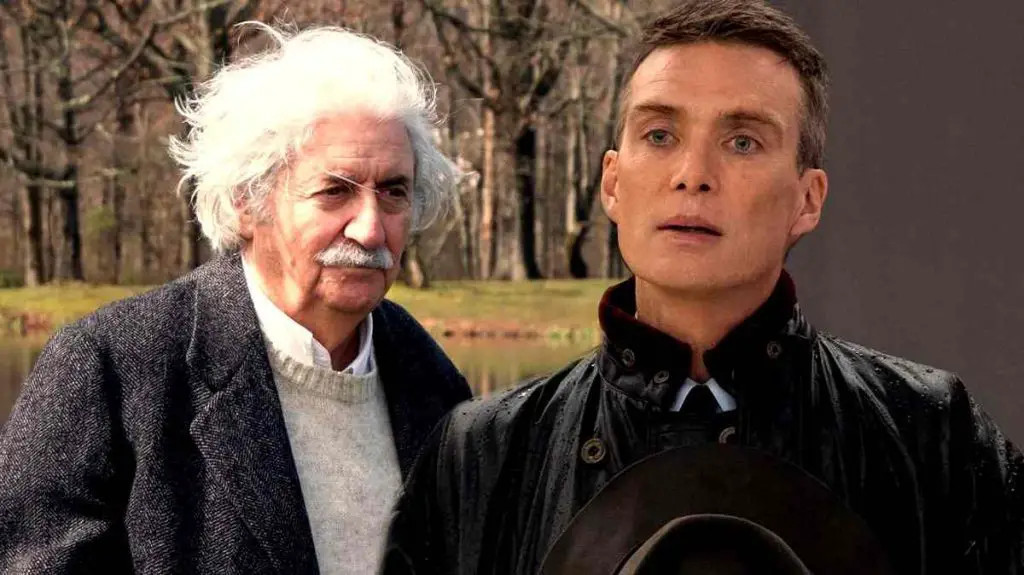
Tom Conti, a seasoned Scottish actor, dons the hat of the renowned scientist in ‘Oppenheimer.’ His illustrious career spans both stage and screen, boasting an array of memorable performances. From sharing the screen with David Bowie in 1983’s ‘Merry Christmas Mr. Lawrence’ to earning an Academy Award nomination for Best Actor in 1984 for his role in ‘Reuben, Reuben,’ Conti’s talent is undeniably far-reaching. A stage actor at heart, he has made his mark in renowned productions on the West End and Broadway, even securing a Tony Award for Best Actor in a Play for ‘Whose Life is it Anyway?’ Movie aficionados may fondly recall Conti’s role as Judge Gerald Biggleswade in ‘Paddington 2’, celebrated as one of the greatest films ever.
A Reunion for Tom Conti and Christopher Nolan
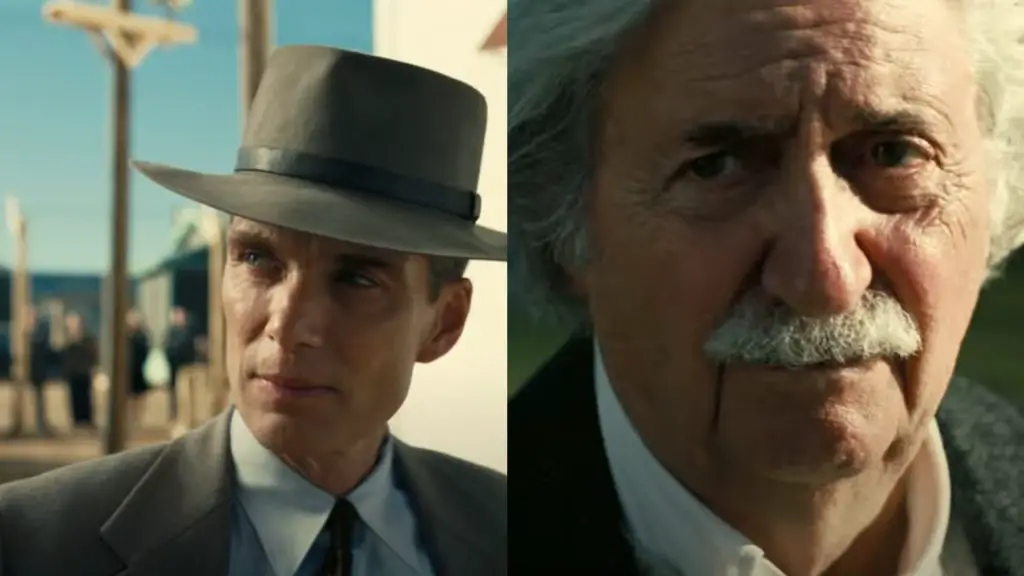
Tom Conti, although under heavy makeup in the ‘Oppenheimer‘ trailer, is not new to the Christopher Nolan universe. In Nolan’s iconic Batman trilogy, Conti had a pivotal role in 2012’s ‘The Dark Knight Rises,’ credited as “Prisoner.” Despite the modest title, his character played a crucial part in encouraging Bruce Wayne (Christian Bale) during his lowest point, motivating his escape and eventual redemption against Bane (Tom Hardy).
‘Oppenheimer‘ is now playing in theaters, and it’s a cinematic offering you don’t want to miss. This film not only provides a unique historical perspective but also showcases the power of top-tier acting and masterful direction.


